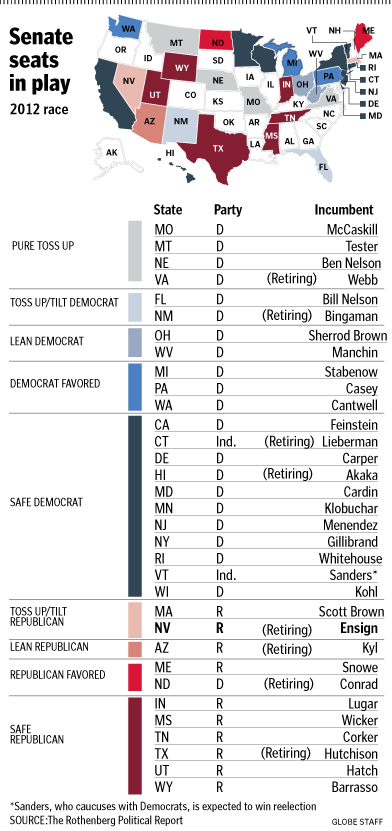In conservative circles, China is always a boogeyman. Few people know anything about China or chinese monetary policy. I am now going to explain, in as simple terms as possible, why China is not a threat, despite their huge dollar reserves and the fact that if they were to dump those, the dollar would be destroyed.
The Chinese currency used to be pegged to the dollar, until as late as last year. Still, it's not entirely "floating"; the chinese government has just allowed "greater flexibility". If your currency is pegged to the dollar, you need to keep dollar reserves. Let's say your currency is supposed to be worth 10 % of the dollar, then you need to keep 1 dollar for every 10 units of your currency there is in circulation. Hence the dollar reserves. In China's case, they may have enough reserves to destroy the US dollar in case they were to sell these reserves, but let's think about it:
What were to happen if they sold their dollars?
Suddenly, they wouldn't be able to keep their peg anymore. If their currency is worth 10 % of the dollar, and the dollar is worth zero, that means their currency would be worth 10 % of zero which is... zero.
What are the odds that China would destroy their own currency like that? And while they don't have the currency technically pegged right now, they still want to keep it within a "range" of values against the dollar. China may not belong to the "good guys", but they're not stupid.
Quite the opposite. China has recently started to strengthen their bands with Russia. This is a good idea, since it makes them less vulnerable if (when?) the dollar does indeed collapse. The thing about Russia that makes its future prospects way better than the US is the lack of debt. The Russian national debt is less than 10 % of GDP (the US is above 60 % and rising). This is a smart move by China, who realize that the US economy just isn't what it used to be.
What is it that makes investors buy American bonds? It's fascinating, really, and I think there are two explanations:
1) The US, after all, has a great credit rating - for now. It has never defaulted before, always managed to somehow pay of its debt even when things have looked dark.
2) Investors are gambling on a new dollar rally. See, when the financial crisis broke out in 2008, the US dollar suddenly started to gain, much to the surprise of economists in my home country of Sweden. The US dollar went from being worth around 6 Swedish crowns to something like 8 Swedish crowns, and it all happened over the course of a few months. The same thing happened to the euro, which was worth 9 crowns before the crisis, and 11:50 at its peak just a few months later. The explanation was that investors were fleeing from small currencies such as the Swedish crown into "safe", big currencies like the euro and the dollar. When you buy a foreign bond, you must consider the exchange rate. Suppose you're a Swedish investor, buying a US bond with a 5 % interest rate. Now suppose the dollar loses 5 % of its value (in terms of Swedish crowns); then you will have made no gain at all. On the other hand, suppose you bought a 3-month treasury bill with a 1 % return or something on september 1, 2008, and three months later the dollar is 25 % stronger - then you've made a 26 % return with on a risk-free asset.
If you, as a non-US investor, think there is going to be a new financial crisis, and if you think the market is going to react the same way as it did during the last financial crisis , it makes perfect sense to buy American bonds and dollars right now because the return may very well be skyhigh. This has another consequence: If many investors are doing this as of now - holding american bonds/dollars because they are hoping for another dollar rally - that means the value of the dollar is likely inflated, since part of the demand for the dollar is based on expectations that are unlikely to come true (the next financial crisis may very well lead to the US defaulting and the dollar losing most of its value).
Back to China. Are there any circumstances under which they would sell their dollar reserve? Yes. If they thought the US dollar was going to collapse, they would try to sell their dollars before the collapse (just like if you think a company you own shares in are going bankrupt, you'll sell your shares in that company as soon as possible). Up until recently, the whole idea of a US default was ridiculous. Now, with Standard & Poor's warning that the US might lose its credit rating, that is definitely no longer the case. If the US does lose its rating, you may see the Chinese dumping the US dollar, not to mess with America, but because they fear it will become worthless soon enough anyway. Such a dumping would only fasten the US demise (a demise that is certain to happen anyway if nothing is done about the deficit).
A rational investor diversifies his portfolio. Say an investor holds 50 % of his money in risk-free assets (such as short-term bonds in countries with stable economies), 30 % in medium-risk assets and 20 % in high-risk assets. The only risk-free asset he holds is US bonds. Now let's say the US loses its credit rating - it turns out that those US bonds aren't risk-free at all. This will cause this investor to sell those bonds and buy some "real" risk-free assets (he may keep 20 % or so of the US bonds if he considers them to be medium-risk). It's a simplified example, but the point is that demand for risk-free assets is greater than that of risky assets, which is why risky assets need to provide a higher return than those that are risk-free. In this case, it means a higher interest on the national debt.
Some conservatives like to claim that China could threaten to sell their dollars to intimidate the US into doing whatever China wants it to do. While technically possible, there is simply no reason why they would sell their dollars unless they thought them to be highly overvalued. If China were to start to act irrationally, investors would notice and refrain from investing there (if they are stupid enough to sell perfectly fine US dollars, who knows what they will do next?).
It is vital for the US to keep its AAA rating, or else the Chinese - and everyone else who are currently holding US dollars - might get cold feet, which would lead to a financial crisis which wouldn't be the worst since the Great Depression, but actually worst. In my next post, I'll explain how Republican candidates should deal with this threat of a downgrading.
China is not a threat. The American founder who said that the US was never going to be destroyed from the outside but could be destroyed from within was right.
The threat is from Washington DC, not Beijing.



















